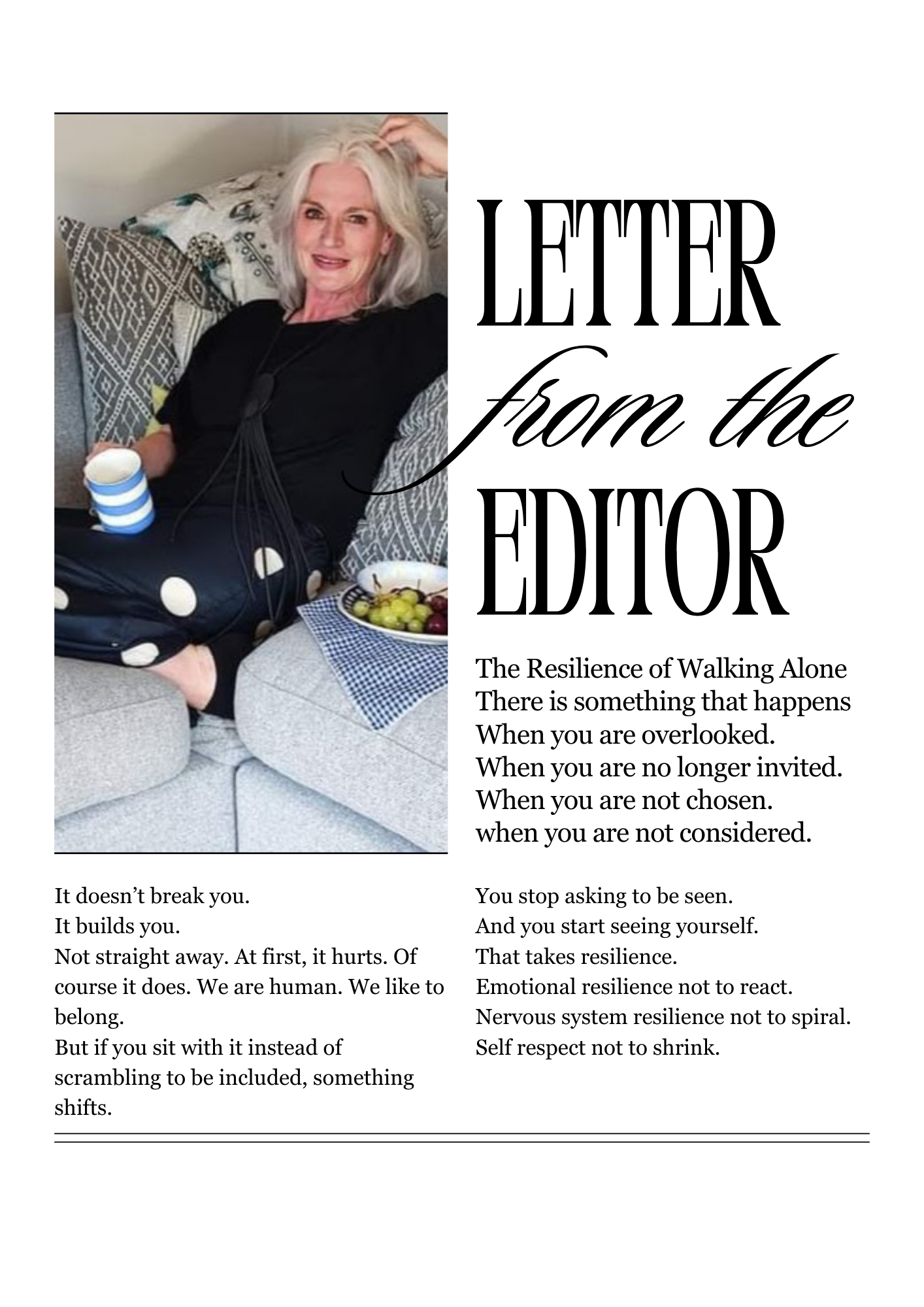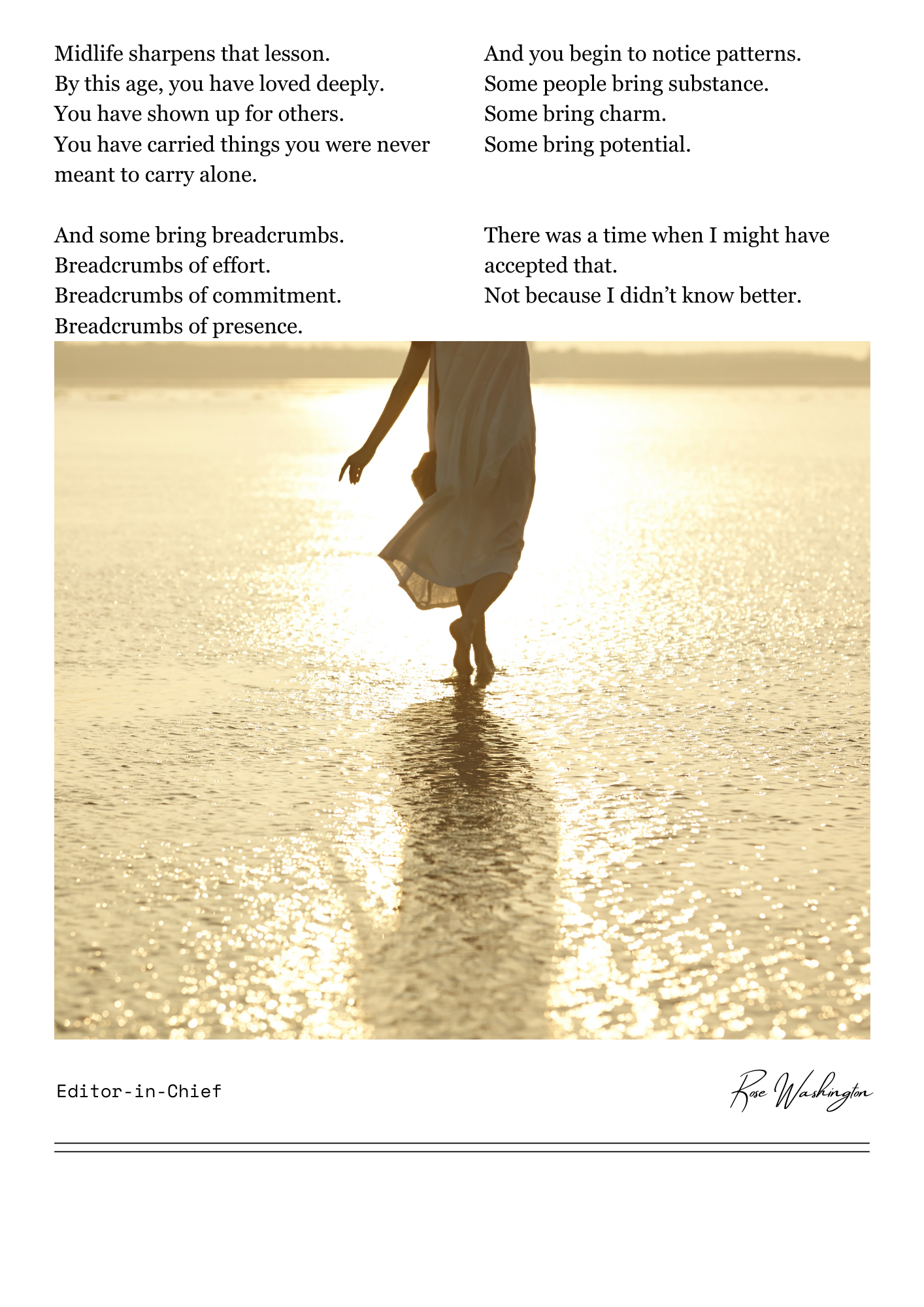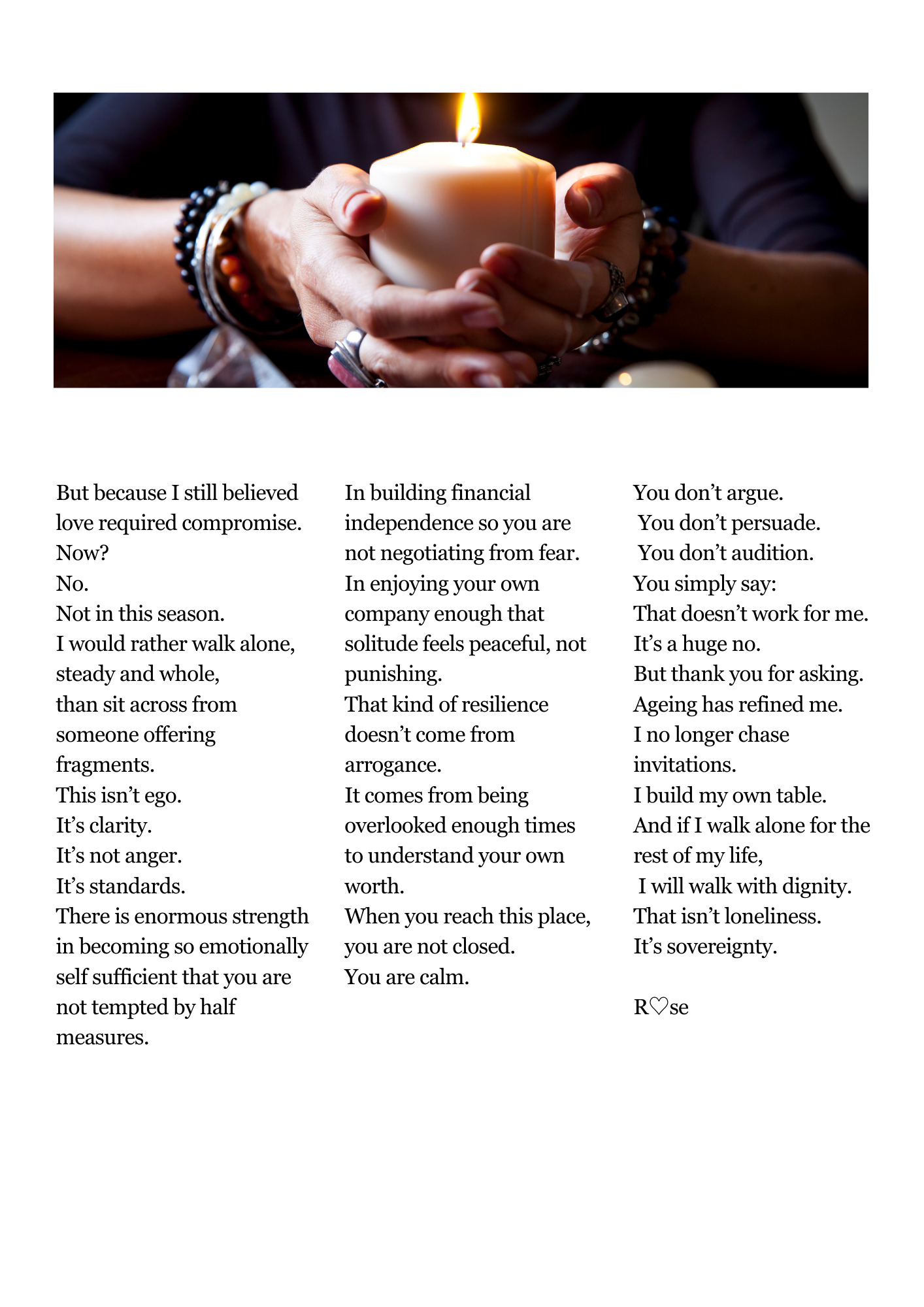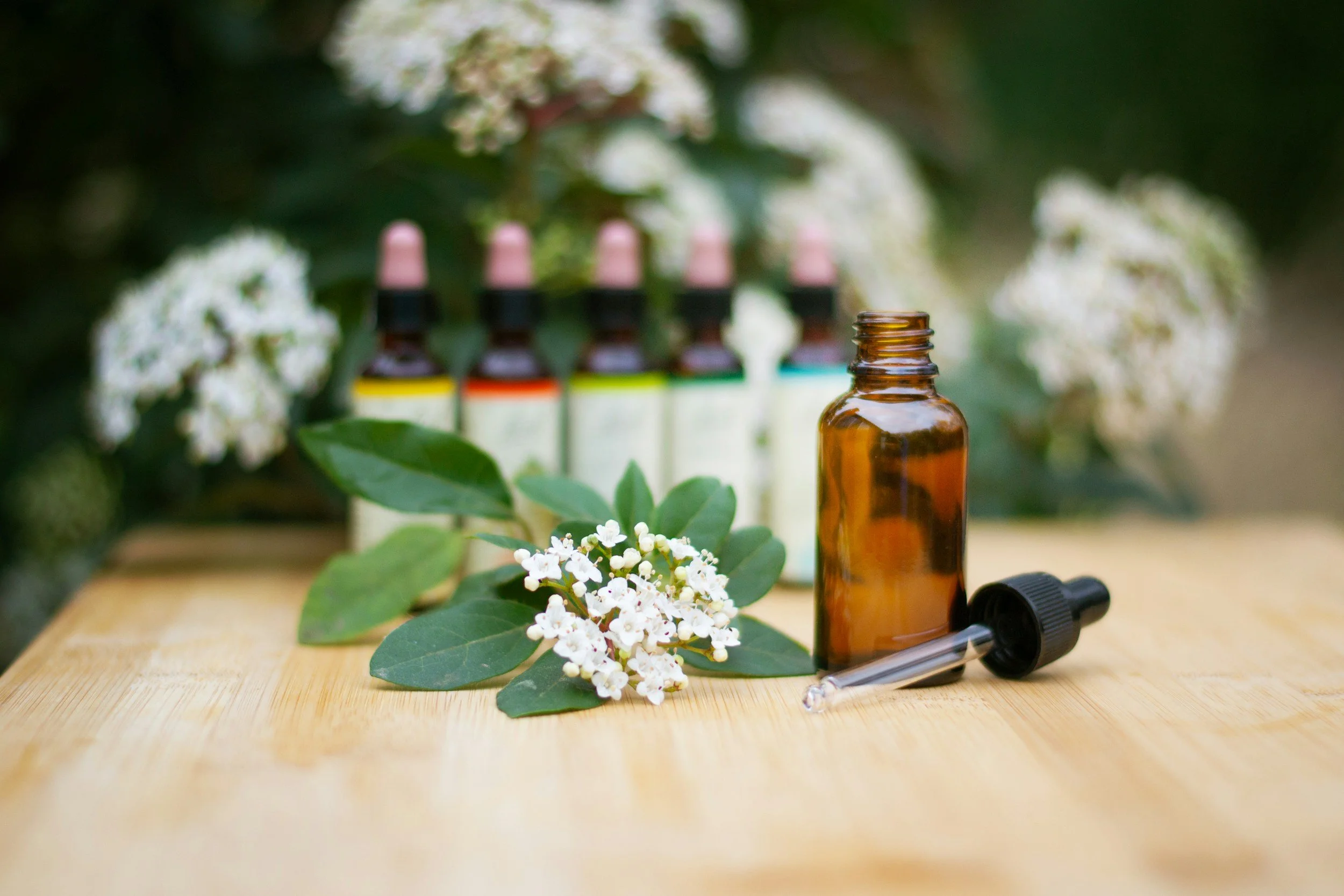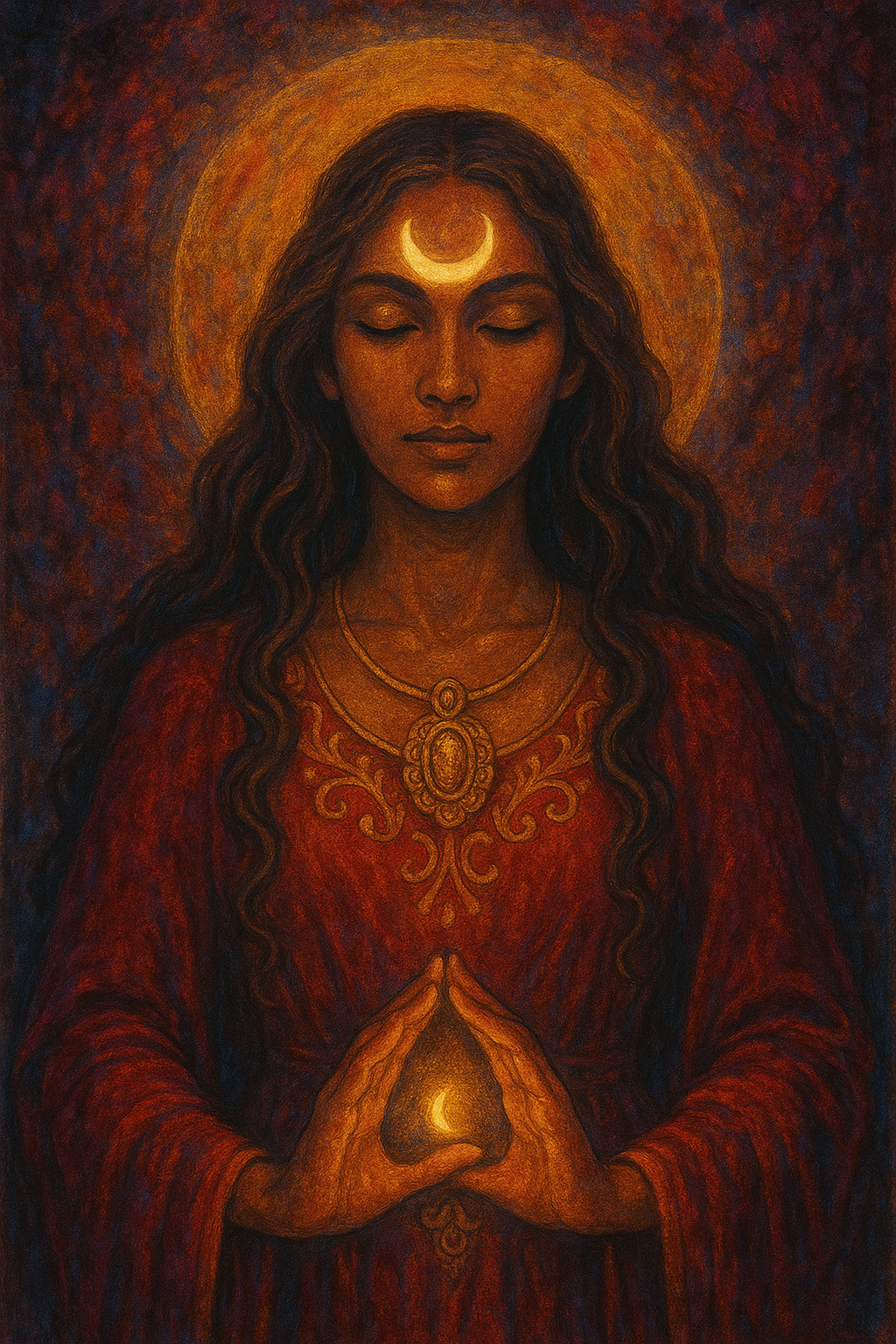Fire Horse Year
Today marks the beginning of a new cycle.
I will be sixty in June. The next Fire Horse year will not come again in my lifetime.
So this one matters.
This year I am consciously designing a life I can retire to, not from.
I am single. Independent. Still navigating autoimmune, thyroid and gynae investigations. Real life. Real body. No performance.
This is the beginning of documenting that journey.
Not as reinvention.
As refinement.
Working with the nervous system, not against it
Many people I meet are not struggling because they lack understanding, commitment, or resilience. More often, they are living and working in ways that have placed steady pressure on their nervous system over a long period of time.
When your role involves supporting others, whether emotionally, practically, or psychologically, your body is constantly adjusting. You stay attentive. You respond to intensity. You hold responsibility and then move on to the next demand. Often there is very little space to pause or recover in between.
Over time, this kind of pattern shapes how the nervous system functions.
My work is grounded in an understanding of how the body responds to ongoing demand. The nervous system is always gathering information from the environment and deciding what is needed to stay safe. When there is limited recovery and prolonged stress, the body adapts. These adaptations might show up as ongoing tension, difficulty resting, emotional numbness, or a sense of being overwhelmed by things that once felt manageable.
These responses are not personal failings. They are signs of a system that has been working hard to cope.
Rather than asking people to push through or fix themselves, I help them understand what their nervous system has been doing and why. From there, we explore how to support the body more effectively in the context of real life.
This work is not about forcing relaxation or adding more tasks. It is about learning how regulation actually happens in everyday conditions such as long shifts, emotional labour, responsibility for others, and periods of significant change, including midlife and hormonal transitions.
We pay attention to pacing, boundaries, recovery, and the subtle signals the body offers when it needs support. Often, small and consistent adjustments create meaningful shifts. As the nervous system begins to feel safer, people often notice more clarity, steadier energy, and a greater sense of presence in both their work and their lives.
This approach is not about correcting what is wrong. It is about creating conditions that allow the body to settle and respond more flexibly.
When the nervous system is supported, capacity returns. People find they can stay engaged without constantly running on empty, and the work they do becomes more sustainable over time.
Burnout as a Therapist
Protecting Your Energy as a Woman Who Holds Others
Burnout in therapists rarely comes from one big event.
It grows quietly through years of holding, listening, regulating, absorbing.
As women, many of us were conditioned early to be the emotional container.
To be attuned.
To be available.
To stay soft even when we are depleted.
In therapy work, this conditioning can become dangerous if it goes unexamined.
We are trained in technique.
We are trained in ethics.
We are trained to hold space.
What we are rarely taught is how to protect our own nervous system while doing so.
Without this awareness, the body becomes the holding place for everything the system cannot process. Over time, this shows up as exhaustion, emotional flatness, resentment, anxiety, autoimmune symptoms, hormonal disruption or a quiet loss of joy in the work we once loved.
Burnout is not a personal failure.
It is a nervous system response to prolonged responsibility without adequate repair.
Why therapists are especially vulnerable
Therapists often work inside systems that reward over giving.
We are praised for resilience.
For flexibility.
For coping.
Many therapists sense when something is off but keep going anyway.
Especially in midlife, when hormonal change amplifies stress responses and reduces our tolerance for constant demand.
Menopause does not cause burnout…it reveals it.
Gentle ways to protect your energy as a therapist
1. Stop carrying what is not yours
Empathy does not require absorption.
If you feel drained after every session, your nervous system may be staying activated long after the work ends. Create a clear internal ritual for returning responsibility to the client where it belongs.
2. Honour your nervous system first
Your capacity to support others depends on your own regulation.
This might mean fewer sessions, longer gaps, quieter days or changing how you work entirely. This is not weakness. It is wisdom.
3. Build closing rituals into your day
Therapists need endings, not just beginnings.A short walk, washing hands with intention, breathwork, a grounding oil or simply silence can help the body complete the stress cycle.
4. Watch the midlife layer
Hormonal change can lower resilience to chronic stress.
If you are more sensitive, more emotional or more tired than before, listen. This is not something to push through.
5. Let your identity evolve
You are allowed to change how you practice.
To teach instead of treat.
To mentor instead of hold.
To write, educate, create or step back for a while.
Your worth is not measured by how much you carry.
Burnout is often the body asking for a new relationship with work, responsibility and self.
For therapists, healing does not mean leaving the profession.
It means learning to include yourself in the care you offer so freely to others.
Written by Rose Washington
🌍 Global Therapist | Educator | Mentor
𖤓 Trauma Informed Menopause Coach
🎓 BSc Hons | 40 yrs in Practice
Bergamot
An essential oil for the New Year
The New Year often arrives quietly.
Despite the noise around resolutions and fresh starts, many people enter January feeling tired, reflective or emotionally full rather than energised. The old year hasn’t quite loosened its grip, and the new one hasn’t yet taken shape.
This in-between space is where Bergamot belongs.
Bergamot is a citrus oil, but it doesn’t behave like one. It isn’t sharp or demanding. It doesn’t push energy upwards or force positivity. Instead, it brings lightness with softness, clarity without urgency.
That’s why I often associate Bergamot with transition rather than motivation.
It’s an oil that supports emotional release. Not dramatic release, but the quiet kind. The exhale you didn’t realise you were holding. The easing of mental tension that comes when the nervous system feels safe enough to let go.
At the start of a new year, many people are carrying the residue of the previous one. Unfinished emotions. Fatigue. Grief. Relief. Disappointment. Hope. Often all at once.
Bergamot doesn’t ask you to categorise any of that.
It simply creates a little more space around it.
Through the sense of smell, Bergamot works quickly on the emotional centres of the brain. Its aroma is fresh, but rounded. Bright, yet grounded. For many people, it brings a sense of perspective rather than excitement.
This makes it particularly supportive for those who feel overwhelmed by expectation. Those who don’t resonate with setting goals in January. Those who need to move gently rather than leap forward.
I often suggest working with Bergamot through the skin at this time of year. A drop diluted into a facial oil or body oil, applied slowly, without intention beyond presence. Skin care becomes a daily moment of reconnection rather than another task to complete.
Diffusing Bergamot while journalling, resting or simply being can also help soften the edges of thought. It supports reflection without rumination. Forward movement without pressure.
Emotionally, Bergamot can be helpful when there is low mood, suppressed frustration, or a sense of emotional stagnation. It doesn’t bypass what’s there. It allows movement around it.
In that way, Bergamot feels honest.
It doesn’t promise transformation.
It doesn’t insist on optimism.
It supports ease.
For the New Year, that feels important.
Not every beginning needs force.
Not every chapter starts with clarity.
Sometimes the most supportive thing we can do is create a little lightness and allow the rest to unfold in its own time.
Bergamot does that gently.
And that, for the New Year, is often enough.
Rose
Consultant Aromatherapist / Menopause Therapist
Reconnecting With Nature Through Aromatherapy
We live in a world that rarely pauses.
Most days are spent moving from one thing to the next, responding to demands, absorbing information, and carrying a level of mental load that the body was never designed to hold for long periods of time. Busyness is rewarded. Stillness is seen as lazy.
And yet, the body keeps giving us feedback.
Many of us notice how different we feel when we step outside. A walk beneath trees. Sitting near water. Breathing in fresh air. There is often an immediate softening. Shoulders drop. Breath deepens. Perspective shifts without effort.
We already know that nature supports our mental and emotional wellbeing. The difficulty is not the knowing. It’s the access.
Time in nature has quietly become something we treat as optional, rather than essential. Something squeezed into weekends or holidays, rather than woven into daily life.
This is where aromatherapy offers gentle support.
Not as a replacement for being outdoors, but as a bridge. A way of bringing the natural world closer, especially when life feels full, busy or constrained.
Working With Plants, Trees & Flowers
Every essential oil begins as part of a living plant. A tree. A flower. A fruit.
Grown slowly. Harvested carefully. Distilled with patience.
When we work with essential oils, we are engaging with nature in a very direct way. Scent moves quickly through the body, travelling straight to the parts of the brain linked to memory, emotion and safety. It doesn’t need explanation. It doesn’t require effort.
Breathing in an essential oil is not just about enjoying a pleasant aroma. It’s about meeting the essence of that plant. Its environment. Its rhythm. Its character.
A citrus oil can evoke warmth and light.
A wood oil can bring steadiness and grounding.
A resin can invite stillness and reflection.
This connection happens instinctively. The body recognises it before the mind does.
Slowing the Nervous System Through Scent
One of the gifts of spending time in nature is that it naturally slows us down. Aromatherapy offers a similar invitation.
Scent encourages us to pause. To breathe more deeply. To come back into the body.
In a world of constant stimulation, this kind of sensory grounding is important. It helps regulate the nervous system, supports emotional balance and allows us to feel more present.
Different oils meet us in different moments.
Forest oils can ground us when we feel scattered or overstimulated.
Citrus oils can lift emotional heaviness on dull, grey days.
Floral oils can soften the edges when we feel emotionally stretched.
When we awaken the senses gently, presence follows. And presence is often what we’re most missing.
Essential Oils I Often Return To
Over the years, there are certain oils I return to again and again, depending on what life is asking.
Bergamot brings lightness without agitation.
Cedarwood offers steadiness and grounding.
Clary Sage supports emotional and hormonal balance.
Frankincense invites pause and perspective.
Geranium balances and soothes fluctuating emotions.
Rose supports the heart, particularly during times of grief or tenderness.
Rosemary clears mental fog and supports focus.
Sandalwood offers deep, quiet steadiness.
Sweet Orange brings warmth and ease.
Vetiver grounds deeply when life feels unsteady.
Ylang Ylang softens tension and invites the body to relax.
These oils don’t fix emotions. They support the body in feeling them safely.
Bringing Nature Back Into Everyday Life
Blending aromatherapy with simple daily rituals allows nature to weave quietly into modern life.
Diffusing a seasonal blend while moving around the house.
Using a familiar scent during skincare or bathing.
Keeping a small journal of the oils you’re drawn to and how they make you feel.
Creating a simple space with flowers, stones or leaves and a scent that reflects the season.
These moments don’t need to be elaborate. Their power lies in repetition and intention.
They remind us that we are not separate from nature. We are part of it.
A Gentle Way Back
Reconnecting with nature doesn’t always mean long walks, wild swims or grand gestures. Sometimes it begins with a single breath. A familiar scent. A moment of stillness.
Aromatherapy offers a quiet way back. Back to the senses. Back to the body. Back to a rhythm that feels more human.
Nature has always been there.
Sometimes we just need a gentle reminder.
Rose
Consultant Aromatherapist / Menopause Therapist
Merry Christmas
If this season feels quiet, tender or different
Merry Christmas.
Not the loud kind.
Not the glitter wrapped, over performing kind.But the gentle kind.
The honest kind.The kind that meets you exactly where you are.
For some, today is full of warmth, family, laughter & tradition.
For others, it is quieter, heavier, more complicated.
And for many who are sober, Christmas carries its own particular texture.
A Christmas without numbing
Choosing sobriety means meeting the day as it is.
The memories.
The missing people.
The moments that ache a little.
The moments that surprise you with their sweetness.
There is no rushing past the feelings.
No softening the edges.
Just presence.
That takes courage.
Especially on a day that encourages distraction, indulgence & emotional bypassing.
If today brings mixed emotions
Let them be mixed.
You can feel grateful & sad.
Connected & lonely.
Peaceful & restless.
Hopeful & tired.
None of this cancels anything out.
It simply means you are human.
Christmas has a way of touching old layers.
The body remembers past Christmases.
Past losses.
Past versions of ourselves.
Sobriety allows those memories to surface without judgement.
Without running.
Without needing to fix them.
A different kind of celebration
Today might look like
a quiet morning
a walk in winter air
a long bath
a simple meal
a candle lit in honour of what has been lost & what has been survived
This counts.
This matters.
Celebration does not have to be loud to be meaningful.
A gentle wish for you today
May you feel safe in your body.
May you feel permission to rest.
May you honour the choice you have made to care for yourself.
May you trust that this quieter way of being is not lacking
it is deeply full.
Merry Christmas…Just as you are.
Right here.
Right now.
With warmth & compassion,
R♡se
A Sober Christmas Is Not a Lonely One
It is an honest one
There is a particular kind of loneliness that can show up at Christmas.
Not the obvious kind.
Not always about being alone.
But the quieter loneliness of sitting at a table where you no longer fit the role you once played.
The loneliness of choosing awareness over distraction.
The loneliness of being present in a world that encourages numbing.
Sobriety can bring this into sharper focus.
When you stop drinking, you stop buffering yourself from the room.
From the dynamics.
From the silences.
From the comments that land differently now you are fully here.
And Christmas, with all its rituals & expectations, can magnify that feeling.
Loneliness is not failure
It is information
Loneliness often gets framed as something to fix.
But in truth, it is a signal.
A message from the nervous system saying something here matters.
Something here needs care.
When you choose sobriety, you may notice which connections feel nourishing
& which ones were held together by habit, history or alcohol.
That awareness can ache.
But it is also a sign of growth.
You are allowed to change the script
Many people stay drinking at Christmas because it keeps the peace.
It smooths over discomfort.
It keeps them palatable.
Sobriety can disrupt that.
Not because you are difficult.
But because you are no longer disappearing.
You may notice you need more space.
More quiet.More honesty.
Less small talk.
Less tolerance for emotional labour.
This does not make you selfish.
It makes you self aware.
A different kind of connection
Sobriety often brings a deeper connection,not necessarily with more people, but with the right ones.
A conversation that actually lands.
A moment of shared laughter that is not fuelled by alcohol.
A quiet evening that feels steady rather than performative.
And perhaps most importantly a relationship with yourself that no longer requires escape.
That is not loneliness.
That is intimacy.
If Christmas feels tender this year
Let it be tender.
You do not need to rush to fill the space.
You do not need to replace alcohol with busyness.
You do not need to justify your choices.
Sometimes the bravest thing is to sit with what is real, & trust that clarity is kinder than numbing.
Sobriety may change how Christmas feels, but it also changes how deeply you can meet yourself within it.
And that kind of connection lasts far beyond the season.
Sobriety at Christmas
When the season asks more of you than it gives
Christmas has a way of shining a very bright light on things we usually keep tucked away.
For some, it brings comfort, ritual, connection.
For others, it brings memory, grief, pressure & a quiet ache that sits beneath the surface.
If you are sober at Christmas, this season can feel particularly loud.
Alcohol is everywhere.
In adverts.
In jokes.
In family rituals.
In the unspoken expectation that celebration equals drinking.
And yet, choosing sobriety is often one of the bravest, most self respecting decisions a person can make.
Especially at this time of year.
Sobriety is not the absence of joy
It is the presence of clarity
Many people believe sobriety is about giving something up.
In truth, it is often about giving something back.
Your nervous system.
Your mornings.
Your sense of self.
Your emotional boundaries.
Your ability to feel what is real, rather than numbing what is painful.
At Christmas, emotions tend to rise.
Old family dynamics resurface.
Unspoken grief comes closer.
Loneliness can feel sharper.
Expectations heavier.
Alcohol can soften the edges for a few hours, but it rarely softens the aftermath.
Sobriety allows you to stay with yourself through it all.
Not perfectly.
Not bravely every moment.
But honestly.
The body remembers
Even when we try not to
For many people, drinking was never just about enjoyment.
It was about coping.
Regulating.
Surviving moments that felt too much.
The nervous system learns these patterns early.
When safety feels uncertain, the body looks for relief.
Alcohol often becomes a shortcut to calm.
At Christmas, when the body remembers past stress, loss or emotional strain, those old pathways can flare up.
This is not weakness.
It is physiology.
It is memory stored in the body.
Choosing sobriety is a way of gently retraining the nervous system.
Teaching it that safety can be created without numbing.
That regulation can come through rest, ritual, breath, touch, connection.
It is ok if Christmas feels different now
Sobriety can change how Christmas looks.
You may leave gatherings earlier.
You may say no more often.
You may feel more sensitive to noise, tension or forced cheer.
This does not mean you are doing it wrong.
It means you are listening.
It is ok to build a quieter Christmas.
A simpler one.
One that prioritises nervous system safety over social expectation.
It is ok if your celebrations look nothing like they used to.
Growth often requires letting go of old versions of ourselves.
Gentle ways to support yourself through a sober Christmas
• Create your own rituals
Morning walks, evening baths, lighting a candle, journalling, aromatherapy, quiet music. Ritual gives the body something to anchor to.
• Plan your exits
Knowing you can leave when you need to reduces pressure. You do not owe anyone an explanation for protecting your wellbeing.
• Nourish your nervous system
Warm meals, hydration, rest, touch, slow breathing. Regulation is foundational during emotionally charged seasons.
• Stay connected to what matters
Whether that is one trusted person, an online community, or your own inner world. Connection does not have to be loud to be meaningful.
• Allow the feelings
Sobriety can bring emotions closer to the surface. Tears, sadness, nostalgia, relief. All of it belongs.
Nothing needs fixing.
This is a season, not a test
You do not have to make Christmas perfect.
You do not have to enjoy every moment.
You do not have to perform gratitude or cheer.
Choosing sobriety at Christmas is not about willpower.
It is about self respect.
It is about meeting yourself where you are.
It is about creating safety in a world that often asks us to override our own needs.
If this season feels tender, you are not alone.
If you are navigating sobriety quietly, you are doing something deeply meaningful.
And if all you do this Christmas is stay connected to yourself, that is more than enough.
With warmth & compassion,
R♡se
A Gentle Guide to Vagal Healing
I think so many of us are feeling more stressed… Shorter days, Longer lists, Busier minds… it’s endless isn’t it?
One thing I remind the women I work with is that the body already has its own built in calm button.
It’s called the vagus nerve.
Vagus comes from the Latin word meaning wanderer, because it travels from the brainstem through the face, throat, lungs, heart, digestive system and deep into the pelvis.
This nerve is the quiet messenger between your mind, body, hormones, digestion, immunity and emotions. Some even call it the second brain.
When the vagus nerve is supported, the whole body softens.
Breath slows. Heart rhythms steady. Digestion improves. Thoughts calm.
This is the rest and digest response. The place where healing is possible.
The beautiful part is that you can support it gently through your day, without force and without overwhelm.
Ways to support your vagus nerve
♡Breath work
Slow nasal breathing is deeply soothing.
Inhale to 4. Hold for 2. Exhale to 6.
Just a minute of this can calm the limbic brain and ease anxiety.
♡Gentle movement
Walking, stretching, mindful yoga and simple daily movement support circulation, digestion and heart rate variability. This naturally strengthens vagal tone.
♡Acupuncture
A beautiful support for the nervous system. It can improve heart rate variability and guide the body back into a calmer parasympathetic state.
♡Singing, humming or gurgling
These tiny practices activate the throat muscles that connect with the vagus nerve.
I often suggest humming in the shower or gently chanting while making your morning tea.
♡Gut support
Your vagus nerve is a main messenger between the gut and the brain.
Nurturing your gut with fibre, prebiotics and probiotics naturally supports vagal tone.
♡Aromatherapy
Essential oils are one of my favourite ways to soften the nervous system.
Oils like;
♡Bergamot
♡Lavender
♡Vetiver
♡Frankincense calm the limbic brain and encourage deeper breathing which naturally supports the vagus nerve.
You can inhale them from the palms, add a few drops to a diffuser or blend with a carrier oil and apply over the chest, neck or solar plexus.
Written by Rose Washington
🌍 Global Therapist | Educator | Mentor
𖤓 Trauma Informed Menopause Coach
🎓 BSc Hons | 40 yrs in Practice
The Womb Remembers What the Mind Forgets
So many women come to me saying, “I feel heavy in my lower belly,” or “I don’t feel connected to that part of me anymore.”
It’s not in their imagination.
It’s the body speaking.
When we’ve lived through trauma, emotional neglect, or years of over-giving, the womb remembers.
It’s a deep, intelligent centre that absorbs everything we’ve never had the space to express grief, disappointment, betrayal, exhaustion.
We can be in long-standing relationships that look enviable from the outside, yet inside we feel quietly unseen.
That’s the loneliness that can live even within love.
Unhealed experiences don’t simply disappear; they settle into the energy of the body, especially the womb, until we finally slow down enough to listen.
Often, that listening only begins when we become unwell, when life gives us no choice but to stop. In that stillness, the truth surfaces:the nervous system, the endocrine system & the emotional body are all trying to speak at once.
The Science of Remembering
When we live in survival mode, cortisol stays high.
Over time, this constant alert state disrupts communication between the brain & the ovaries & the HPA axis.
Cycles become irregular, moods swing, anxiety rises, exhaustion deepens.
The body begins to whisper: “Please listen.”
From the perspective of psychoneuroimmunology, every emotion has a chemistry.
When we don’t release that chemistry, it builds, creating disconnection, inflammation & dysregulation.
Womb healing is not abstract spirituality; it’s the science of reconnection.
The Role of Essential Oils
Essential oils can become gentle communication tools between the body & the mind.
When used intentionally through breath, reflex points, or massage they begin to rebuild safety within the body.
Clary Sage, the oil of clarity supports the HPA axis & soothes pelvic tension.
Geranium, for emotional balance, helps release suppressed grief & resentment.
Frankincense grounds the spirit, bringing the soul back into the body after trauma or dissociation.
Rose softens the heart, the womb & the voice, helping us reconnect with our worth.
These oils invite the body to exhale again, to remember its rhythm & its right to feel.
Healing as Reconnection
Womb healing isn’t a trend.
It’s a return.
A return to rhythm, chemistry, voice & confidence.
When we listen deeply to the wisdom held in the womb, we begin to rewrite the patterns that have shaped our nervous system for decades.
We learn that safety isn’t something given to us by others ,it’s something we rebuild from within.
This is the heart of my work.
Helping women remember that healing isn’t about fixing what’s broken — it’s about remembering what’s sacred.
Written by Rose Washington
🌍 Global Therapist | Educator | Mentor
𖤓 Founder, Rose Washington Atelier of Holistic Education
𖤓 Trauma-Informed Menopause Coach
🎓 BSc (Hons) | 40 yrs in Practice
Therapists Hurt Too
We hold so much.
Stories, pain, exhaustion, silence.
We sit with women who are unravelling & breaking open.
We listen. We hold. We help them find their way back to themselves.
But therapists hurt too.
Behind every calm face is a woman who has lived her own storms.
She has known grief, betrayal, loss & the ache of keeping it all together.
She has sat in her own darkness & still chosen to bring light to others.
We don’t get immunity from pain because we understand it.
If anything, we feel it deeper.
Our empathy runs through every cell.
Our bodies remember the stories we hold for others.
There are days when the healer needs healing.
When the therapist needs time to be quiet.
When the guide needs to be guided.
This isn’t failure.
It’s truth.
Healing doesn’t mean you never hurt again.
It means you meet the pain with compassion & curiosity.
It means you stop pretending you’re fine when your heart is tired.
To every therapist, coach, space holder & light worker who feels cracked open –
your heart isn’t broken, it’s working.
It’s learning to stay open in a world that keeps closing.
You don’t need to be endlessly strong.
You just need to stay real.
Because therapists hurt too.
& that’s what makes us human.
Written by Rose Washington, Holistic Therapist & Menopause Educator…explore more reflections in
White Haired at Fifty-Nine
At fifty-nine the mirror holds
a woman I both know & don’t,
her hair silvering into truth,
her face a map of weathered faith.
Independence has its quiet price,
a house where silence hums
like a second heartbeat,
a chair never warmed by another.
Yet I will not barter myself away
to fill the hollow with half-love,
will not bend to comfort
that costs the marrow of my soul.
Gratitude walks beside me,
for mornings, for breath,
for the freedom to choose
my own rhythm, my own room.
Still there lingers an ache…
not for a man, not for a name,
but for something shapeless,
a ghost of closeness
I cannot quite name.
So I stand here, white-haired,
a little lonely, a little luminous,
learning that to be alone
is not always to be lost..
sometimes it is simply
to be sovereign.
If these words resonate, I share more writing & resources on my Substack… a space for deeper conversations around menopause, healing & creativity.
👉 rosewashington.substack.com
The Quiet Confidence of Midlife
Confidence looks different in midlife.
It’s no longer the loud, striving kind that chases approval or applause.
It’s quieter now. Deeper. Rooted in truth.
It’s the kind of confidence that grows from everything you’ve walked through…the heartbreaks, the letting go, the sacred pauses that stripped away who you thought you were so you could remember who you’ve always been.
In this season of life, confidence isn’t about perfection. It’s about presence.
It’s about walking into a room with your whole self intact,no pretending, no performing. Just an embodied knowing that you belong here.
Confidence through the Archetypes
Each stage of our Sacred Menopause journey invites us to meet confidence in a new form.
The Story Keeper remembers her worth. She no longer apologises for her sensitivity or her wisdom. She knows that gentleness is a strength.
The Wild Woman finds her confidence in truth-telling. She no longer shrinks to fit. Her voice becomes medicine.
The Alchemist transforms her pain into power. She realises that everything she’s experienced has refined her.
The Sovereign embodies the confidence that cannot be shaken. It’s not about control,it’s about trust. Trust in her timing, her choices, her voice.
Confidence & the Nervous System
True confidence begins in the body.
When your nervous system feels safe, your voice softens, your shoulders drop, your heart opens.
You stop performing & start living from truth.
Safety creates space for self-expression. This is why I always weave nervous system support into my work breath, grounding, essential oils, gentle movement.
Confidence can’t grow in a body that feels under threat. It grows in one that feels safe to rest, speak & receive.
A Ritual for Confidence
Take a quiet moment for yourself.
Breathe deeply & anoint your wrists with a few drops of this simple blend:
Clary Sage – for clarity & courage
Jasmine – for self-worth & sensual awakening
Bergamot – for the heart, to release fear & open to joy
Place your hand on your heart & whisper:
I am safe to be seen. I am safe to take up space. I trust my own timing.
Let the scent remind you of your strength. Let the ritual become your anchor.
A Closing Reflection
Confidence in midlife isn’t something we find,it’s something we return to.
It’s been within us all along, waiting for the noise to quiet.
When we stop chasing who we think we should be, we finally meet who we truly are.
Kundalini, Grief & Awakening Confidence
Honouring the light that waits beneath our grief
I’ve been reflecting a lot lately. On work. On grief. On loss. On the grief that was never fully processed. The kind that hides deep in the body & waits to be seen.
It’s brought me back to how much I need spirituality in my life. When I turn away from it, I feel disconnected. Life becomes too practical, too busy, too corporate. But my spirit longs for something more … something that reminds me I am not just surviving, I am here to grow. Without it, I feel stifled.
This is where Kundalini is patient. Her quiet energy rests coiled at the base of my spine. Waiting. Protecting. Holding her secrets until I am ready to listen.
When we go through trauma as children, or when loss & neglect weave themselves into our story, that energy can stay buried. It is as if our light is dimmed on purpose, because the body believes it is safer to stay small. I know that feeling, the sense that life might be passing by while I stand on the edge, longing to step in but held back by something unseen.
The truth is, Kundalini is never gone. She is simply waiting for us to create the conditions of safety. When I sit in ritual, when I honour my grief instead of running from it, I feel that spark beginning to rise. Slowly. Gently. Reminding me that confidence is not about pretending to be strong, it is about being rooted in who I am.
Spirituality is not a luxury for me. It is the medicine I need. Without it, I feel lost. With it, I feel guided, held, connected to something deeper than my own story.
The Women’s Health Initiative
The Women’s Health Initiative (WHI), launched in the early 1990s, was a large-scale clinical trial aimed at investigating the effects of hormone replacement therapy (HRT) and other interventions on postmenopausal women’s health. Initially, it promised critical insights into managing menopause and reducing age-related diseases such as heart disease and osteoporosis. However, the abrupt and early termination of its hormone therapy arm in 2002, due to reported increased risks of breast cancer, stroke, and heart disease, caused widespread fear and confusion.
The WHI’s findings led to a dramatic decrease in HRT use, profoundly impacting menopausal women's health care. Many women who might have benefited from hormone therapy either avoided it or abandoned treatment prematurely. This shift resulted in an increase in untreated menopausal symptoms, leading to a decline in quality of life for countless women. Additionally, some have argued that the study's broad application of hormone therapy to an older demographic, rather than younger women closer to menopause onset, skewed the results and contributed to an overly cautious approach.
In light of these consequences, it’s essential to approach WHI findings as a starting point rather than a definitive verdict. Women’s health decisions, especially during menopause, benefit from nuanced, informed conversations that honour both scientific evidence and individual experience. The damage caused The Women’s Health Initiative (WHI) study initially shaped much of the medical community’s understanding of hormone replacement therapy (HRT), largely casting it in a negative light due to perceived risks such as increased incidence of breast cancer and cardiovascular disease. However, subsequent research has revealed that the WHI’s conclusions were overly broad and failed to account for critical factors such as the age of initiation and the timing relative to menopause onset. Contemporary data now supports a more nuanced perspective, demonstrating that when HRT is started in women close to the onset of menopause, it can offer significant benefits with markedly reduced risks. This evolving evidence underscores the importance of personalised, archetype-informed menopause care rather than a one-size-fits-all approach.The WHI underscores the importance of integrating holistic understanding and archetypal wisdom alongside biomedical research to support women through menopause effectively.
A Holistic Approach to Burnout, Confidence, and Menopause
Burnout during menopause is a common yet often overlooked challenge. The physical and emotional shifts experienced can drastically affect confidence, leading to feelings of exhaustion and self-doubt. Understanding and addressing these changes holistically empowers women to reclaim their vitality and inner strength, fostering resilience through this transformative phase.
Essential Oil Blend for Burnout and Confidence Support
Ingredients:
5 drops Lavender essential oil
4 drops Bergamot essential oil
3 drops Frankincense essential oil
3 drops Geranium essential oil
2 tablespoons carrier oil (such as jojoba or sweet almond oil)
Instructions:
Combine the essential oils in a small dark glass bottle.
Add the carrier oil and gently roll to mix.
Apply a few drops to pulse points (wrists, temples, behind the ears) when feeling overwhelmed or low in confidence.
Inhale deeply to soothe the nervous system and uplift the spirit.
This blend harnesses calming and balancing properties to support emotional wellbeing throughout menopause, aiding in the reduction of burnout symptoms while gently restoring confidence.
Embracing Menopause: Wisdom, Strength, and Renewal
Confidence during menopause plays a crucial role in shaping self-worth. As the body undergoes significant changes, women often face challenges that can affect their perception of themselves. Embracing confidence amidst these transitions allows for a deeper acceptance of one’s evolving identity, fostering resilience and self-appreciation.
Menopause can bring fluctuations in mood, energy, and appearance, which may lead to feelings of insecurity or diminished self-esteem. However, when women cultivate confidence by recognising their intrinsic value beyond physical symptoms, they reinforce a positive self-image. This shift in mindset encourages a balanced relationship with one’s body and mind, reducing self-criticism and promoting emotional well-being.
Furthermore, confidence in menopause can empower women to seek support, engage in self-care, and advocate for their needs. This proactive approach not only enhances physical health but also reinstates a sense of control and purpose. Ultimately, confidence nurtures self-worth by affirming that every stage of life, including menopause, holds unique strength and beauty
Affirmations:
I honour the wisdom my body holds and embrace every change with grace.
Each day, I grow stronger in my journey through menopause.
I am connected to my inner power and trust its guidance.
My body and mind are in harmony, supporting my transformation.Title:
Embracing Menopause: Wisdom, Strength, and Renewal
Affirmations:
I honour the wisdom my body holds and embrace every change with grace.
Each day, I grow stronger in my journey through menopause.
I am connected to my inner power and trust its guidance.
My body and mind are in harmony, supporting my transformation.
I welcome renewal and new beginnings with an open heart.
Essential Oil Recipe:
Calming Menopause Blend
5 drops Clary Sage (supports hormonal balance)
4 drops Lavender (soothes anxiety and promotes restful sleep)
3 drops Geranium (uplifts mood and balances emotions)
2 drops Frankincense (grounding and nurturing)
Mix the oils in a 10ml roller bottle with a carrier oil such as sweet almond or jojoba. Apply to pulse points, wrists, behind the ears, and the inner elbows, whenever you need calm and centred energy.I welcome renewal and new beginnings with an open heart.
Mitochondria, Trauma & Essential Oils in Menopause
Menopause is often described as a hormonal change, but it’s much more than that. At midlife, the body’s stress system, nervous system and even our cells themselves come into play. One of the key players in this story is the mitochondria, the tiny “powerhouses” that sit inside every cell.
Mitochondria & Midlife Energy
Mitochondria create the energy our bodies need to function. They convert nutrients from food into ATP, the fuel that powers everything from our heartbeat to our brain. During menopause, fluctuating hormones, inflammation and chronic stress can affect how well mitochondria work.
When mitochondria slow down, many of the symptoms women report in midlife, fatigue, brain fog, low mood, joint pain…make more sense. It’s not just about oestrogen, it’s about the health of our energy systems.
Trauma & the Cellular Stress Story
Research in epigenetics shows that early life stress and trauma can leave an imprint on our stress response system. This imprint carries through to adulthood, shaping how our mitochondria respond under pressure.
Childhood trauma can lead to an overactive HPA axis (our stress regulation centre).
This overactivity pumps stress hormones into the system, which mitochondria are very sensitive to.
Over time, mitochondria become less efficient, which speeds up cellular ageing.
This is why women with a history of trauma often feel the weight of menopause more strongly the body is carrying decades of stored stress that now meets the hormonal transition.
Essential Oils & Mitochondrial Care
Essential oils can’t change our DNA, but they can support the body in profound ways:
Rose & Neroli - calm the nervous system, reducing stress signals that overload mitochondria.
Frankincense - supports deep breathing & oxygen delivery to cells.
Clary Sage - gently balances mood & hormones, helping the stress system rest.
Bergamot - shown to lower cortisol levels & uplift low mood.
Using oils in daily rituals - diffusing, adding to a bath, or applying with a carrier oil -invites the body into a parasympathetic, “rest & restore” state. This is when mitochondria repair and energy is replenished.
A Whole-Body Approach
Caring for mitochondria in menopause isn’t just about supplements or diet -though good nutrition, sleep and gentle movement matter. It’s also about;
Soothing the nervous system (breathwork, meditation, oils).
Releasing old trauma imprints (therapy, bodywork, reflective practices).
Honouring rest as a form of medicine.
When we see menopause through this wider lens, it becomes less about decline and more about healing.
✨ Closing thought:
Menopause is not the end of vitality- it is an invitation to deepen our relationship with our cells, our story and our spirit. By supporting mitochondria, tending to trauma and working with the plant allies of essential oils, we create the conditions for energy, clarity & resilience in the second half of life.
Restorative Menopause Bath Oil
Ingredients (for a 50ml bottle)
Carrier oil (base):
45ml Jojoba oil (skin-nourishing, stable, absorbs well)
Essential oils:
6 drops Neroli (soothes anxiety, calms heart rate)
5 drops Clary Sage (hormonal & emotional balance)
5 drops Rose (deep emotional comfort, supports grief & trauma)
4 drops Frankincense (slows breathing, aids mitochondrial repair through oxygenation)
3 drops Bergamot (uplifts mood, eases cortisol)
Directions
Add the jojoba oil to a dark glass bottle (50ml).
Drop in the essential oils, swirl gently to blend.
Label the bottle with date & ingredients.
To use:
Add 1 teaspoon (5ml) of the blend to a warm bath.
Mix into a small cup of full-fat milk (or unscented bath dispersant) first if you want it to disperse evenly in water.
Soak for 15–20 minutes, focusing on long exhalations to invite your body into parasympathetic rest.
Safety notes
Do not use undiluted oils directly in bathwater (they sit on the surface & can irritate skin). Always mix into carrier oil & dispersant.
Avoid Bergamot if skin will be exposed to sunlight immediately after bathing (it can be photosensitising).
Patch test before use.
Not suitable in pregnancy.
🤍 Rose
Vagus Nerve Reflexology
Vagus nerve reflexology is an emerging holistic approach that targets the vagus nerve through specific reflex points, aiming to enhance parasympathetic nervous system activity and promote overall wellness. The vagus nerve, a critical component of the autonomic nervous system, influences heart rate, digestion, mood, and immune response. By stimulating reflex zones related to the vagus nerve, reflexology practitioners seek to reduce stress, improve digestion, alleviate anxiety, and support emotional balance.
Techniques often focus on areas such as the ears, feet, and hands, where vagus nerve reflex points are believed to be present. Treatment involves gentle pressure and massage designed to activate the nerve's calming pathways. While scientific research on vagus nerve reflexology remains limited, many women, particularly those navigating menopause, report benefits including enhanced relaxation, improved sleep, and reduced symptoms of stress-related discomfort.
Incorporating vagus nerve reflexology within a broader menopause support strategy can complement body awareness and emotional wellbeing, aligning with holistic principles that consider mind, body, and archetypal wisdom. It is advisable for individuals to consult healthcare professionals prior to beginning any new treatment modality, especially those with underlying health conditions.
Embracing Menopause: A Holistic Guide for Women and Wellness Professionals
Mental health is intricately connected to the body’s physiological systems, particularly when considering the long-term effects of childhood trauma. Early traumatic experiences can dysregulate the hypothalamic-pituitary-adrenal (HPA) axis, the body’s central stress response system. This dysregulation often results in an exaggerated or blunted cortisol response, which impacts mood, anxiety levels, and overall emotional resilience.
The vagus nerve plays a critical role in modulating this stress response. As the primary component of the parasympathetic nervous system, it helps to calm the body after stress, promote relaxation, and facilitate healing processes. Dysfunction of the vagus nerve can be linked to the physiological imprint left by childhood trauma, leading to challenges in emotional regulation and increased susceptibility to mental health disorders.
Healing modalities that support the HPA axis and stimulate vagal tone are therefore essential in trauma recovery. Essential oils, used aromatically or topically within a holistic framework, may complement traditional therapies by promoting relaxation, reducing anxiety, and enhancing vagal activity. Oils such as lavender, frankincense, and chamomile possess anxiolytic and anti-inflammatory properties that can soothe the nervous system and support emotional balance.
Incorporating essential oils into a trauma-sensitive self-care routine can aid the body’s natural healing mechanisms by encouraging parasympathetic dominance and reducing HPA axis hyperactivity. However, this approach works best when combined with other trauma-informed practices such as somatic therapy, mindfulness, and psychotherapeutic interventions.
Ultimately, understanding the interconnectedness of childhood trauma, the HPA axis, vagus nerve function, and the therapeutic potential of essential oils supports a holistic pathway to mental health restoration and resilience building.
Essential Oil Blend for Menopause Support
Ingredients:
5 drops Clary Sage essential oil
4 drops Lavender essential oil
3 drops Geranium essential oil
2 drops Frankincense essential oil
30 ml carrier oil (such as jojoba or sweet almond oil)
Instructions:
Combine essential oils in a dark glass bottle.
Add the carrier oil and gently shake to blend.
Apply 3-5 drops to pulse points (wrists, behind ears, and inner elbows) twice daily.
Alternatively, use in a diffuser to create a calming environment.
Benefits:
Clary Sage helps balance hormones and reduce hot flashes. Lavender promotes relaxation and eases anxiety. Geranium supports emotional stability, while Frankincense aids in grounding and overall wellbeing.
Always perform a patch test before use and consult a healthcare provider if pregnant or nursing.
Essential Oil Blend for Menopause Support
Ingredients:
5 drops Clary Sage essential oil
4 drops Lavender essential oil
3 drops Geranium essential oil
2 drops FrankincenseRose


